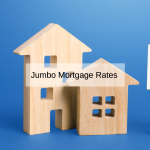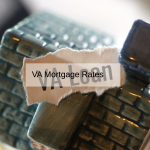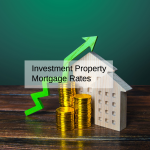In today's ever-changing economic landscape, one of the most crucial decisions individuals and families face is obtaining a mortgage for their dream home. Among the myriad of options available, conventional mortgages stand out as a popular choice for many aspiring homeowners. In this comprehensive guide, we will delve deep into the world of conventional mortgage rates, shedding light on what they are, how they're determined, current trends, and valuable tips for securing the best rates.
What are Conventional Mortgage Rates?
To begin our journey, let's first define what exactly conventional mortgage rates entail. Conventional loans that are not guaranteed or insured by any government agency, such as the Federal Housing Administration (FHA) or the Department of Veterans Affairs (VA). Instead, they are offered by private lenders, including banks, credit unions, and mortgage companies.
Conventional mortgage rates refer to the interest rates applied to these loans, dictating the amount of interest borrowers will pay over the life of the loan. These rates can either be fixed or adjustable, with fixed-rate mortgages maintaining a consistent interest rate throughout the loan term, while adjustable-rate mortgages (ARMs) feature rates that fluctuate based on market conditions.
How to Get the Best Mortgage Rate
Unlock insider tips and strategies to secure the best mortgage loan rates, from improving your credit score to shopping around and negotiating with lenders.
Factors Influencing Conventional Mortgage Rates
Understanding what influences conventional mortgage rates is essential for prospective homebuyers looking to secure favorable terms. Several key factors come into play when determining these rates:
- Economic Indicators: Economic conditions, such as inflation, unemployment rates, and overall market stability, play a significant role in shaping mortgage rates. Lenders closely monitor these indicators to assess the level of risk associated with lending money.
- Personal Financial Factors: On an individual level, factors like credit score, down payment amount, loan term, and debt-to-income ratio influence the interest rate a borrower qualifies for. Generally, borrowers with higher credit scores and larger down payments are offered lower interest rates, reflecting their perceived lower risk to lenders.
Compare Mortgage Lenders Side by Side
Learn how to effectively compare mortgage loan lenders, weighing factors such as rates, fees, customer service, and reputation to find your ideal partner.
Some of Best Mortgage Lenders in the USA
- Quicken Loans - Known for their excellent customer service and fast loan processing times.
- Wells Fargo - Offers a wide range of mortgage products and has a strong presence nationwide.
- Chase Bank - Provides competitive rates and a variety of loan options to suit different needs.
- Bank of America - Offers competitive rates and has a strong online presence for easy access to mortgage information.
- US Bank - Known for their personalized service and flexible loan options.
- Rocket Mortgage - Offers a completely online mortgage application process for convenience.
- Veterans United Home Loans - Specializes in VA loans and provides exceptional service to veterans and active-duty service members.
- CitiMortgage - Offers competitive rates and a variety of loan options for homebuyers.
- SunTrust - Known for their flexible loan terms and excellent customer service.
- Freedom Mortgage - Offers a variety of loan options and specializes in helping first-time homebuyers.
- PennyMac - Known for their competitive rates and efficient loan processing.
- Guild Mortgage - Offers personalized service and a wide range of loan options for homebuyers.
How to Get the Best Conventional Mortgage Rate
Securing the best conventional mortgage rate requires careful planning and consideration of several key factors. Here are some actionable tips to help prospective homebuyers optimize their chances of obtaining favorable rates:
- Improve Credit Score: Maintaining a healthy credit score is paramount when applying for a mortgage. Borrowers should strive to improve their creditworthiness by paying bills on time, reducing outstanding debt, and monitoring their credit report for errors.
- Shop Around: Don't settle for the first mortgage loan offer that comes your way. Take the time to shop around and compare rates from multiple lenders. Online comparison tools and mortgage brokers can help streamline the process and identify competitive offers.
- Consider Loan Terms: Evaluate different loan terms, such as 15-year versus 30-year mortgages, and their respective impact on interest rates and overall loan costs. While shorter loan terms typically feature lower interest rates, they also come with higher monthly payments.
Factors That Determine Your Mortgage Rate
Gain insights into the various factors that influence your mortgage rate, including creditworthiness, loan amount, down payment, and market conditions.
How to Refinance Your Current Mortgage
Navigate the refinancing process with confidence, from assessing your financial situation to choosing the right refinance option and lender.
Understanding conventional mortgage loans rates is essential for anyone navigating the path to homeownership. By grasping the factors that influence these rates, staying informed about current trends, and implementing strategies to secure the best possible terms, prospective homebuyers can make informed decisions and achieve their homeownership goals. Remember, the key to success lies in thorough research, careful planning, and proactive engagement with lenders. With the right approach, finding the perfect mortgage rate is well within reach.
FAQs related to conventional mortgage rates
Q: What is a conventional mortgage rate?
A conventional mortgage rate is the interest rate applied to a conventional mortgage, which is a home loan that is not insured or guaranteed by the federal government.
Q: How are conventional mortgage rates determined?
Conventional mortgage rates are determined by various factors, including economic indicators such as inflation and unemployment rates, as well as personal financial factors like credit score and loan amount.
Q: What is the difference between a fixed-rate and adjustable-rate conventional mortgage?
A fixed-rate conventional mortgage maintains the same interest rate throughout the loan term, while an adjustable-rate conventional mortgage features a rate that can fluctuate based on market conditions.
Q: What is the current average interest rate for a 30-year fixed-rate conventional mortgage?
The current average interest rate for a 30-year fixed-rate conventional mortgage varies but is typically in the range of [current average rate] to [current average rate], depending on market conditions and lender criteria.
Q: How can I improve my chances of getting a lower conventional mortgage rate?
Improving your credit score, saving for a larger down payment, and shopping around for competitive rates are effective ways to increase your chances of securing a lower conventional mortgage rate.
Q: Are there any disadvantages to adjustable-rate conventional mortgages?
While adjustable-rate conventional mortgages can offer lower initial interest rates, they also carry the risk of rates increasing over time, potentially leading to higher monthly payments.
Q: What is the difference in total interest paid between a 15-year and 30-year fixed-rate conventional mortgage?
Generally, a 15-year fixed-rate conventional mortgage will result in lower total interest paid compared to a 30-year fixed-rate mortgage, due to the shorter loan term and lower interest rates.
Q: Can I refinance my conventional mortgage to get a lower rate?
Yes, refinancing is an option to lower your conventional mortgage rate. However, it's important to consider the associated costs and whether the potential savings outweigh the expenses.
Q: Are there government programs available for conventional mortgages that offer lower rates?
While conventional mortgages are not government-insured, there are programs such as Fannie Mae and Freddie Mac that provide guidelines for lenders, potentially leading to more competitive rates for borrowers who meet certain criteria.
Q: How do I compare offers from different lenders to ensure I'm getting the best rate?
To compare offers from different lenders, consider the interest rate, loan terms, closing costs, and any additional fees. Online comparison tools and working with a mortgage broker can help simplify this process.














